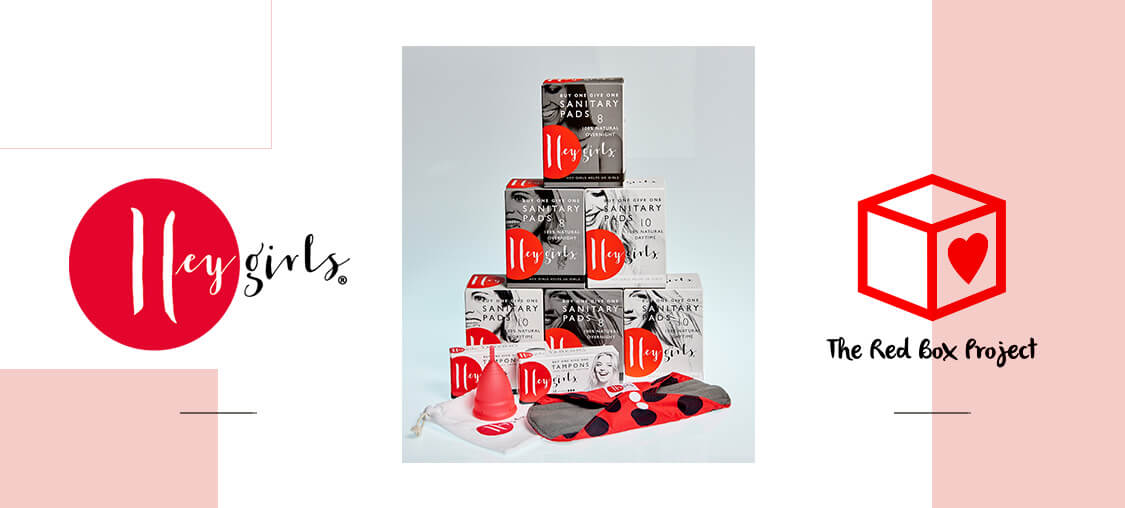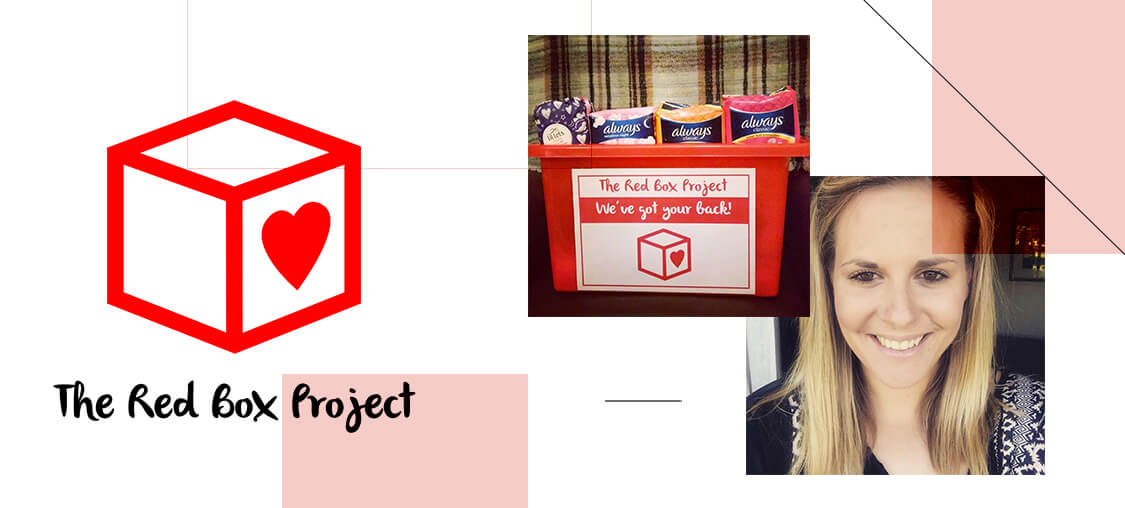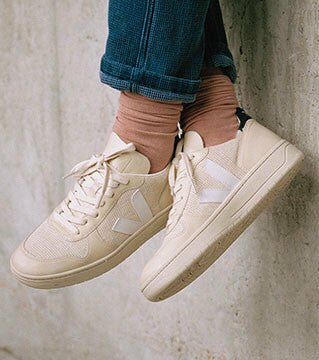Journal
Challenging Period Poverty by Jenessa Williams

Periods. Over half the population has ‘em, but still they remain an enormously taboo subject right across the world. Used to deny women everything from emotional autonomy right through to basic educational rights, the provisions in place for menstrual health remain embarrassingly primitive, an example of the marginalisation of female needs.
While there remains a long way to go in normalising conversations about menstruation and in eradicating period poverty, here in the UK at least, there are some encouraging signs emerging in our fight for all to be able to bleed in relative comfort. A recent bill in Government has been passed to provide free sanitary items in all secondary schools and colleges from 2020, following a pledge to see £2m in international aid designed to fund projects around the world that provide sanitary products and education. The result of pressure from social media activism, this is proof of people power in action, and shows no signs in slowing with new period-positive causes and groups are springing up every day.

To learn more about supporting the cause, we spoke to Anna Miles, co-founder of The Red Box Project, and Kirsten Blackburn, Brand Development Lead at Hey Girls! deepening understanding of how we can all come together to liberate the crimson wave.
Hello ladies! Tell us a bit about yourselves and about your projects – how did they get started, and what is your mission statement?
Kirsten: This Social Enterprise we now call home was founded by our CEO, Celia Hodson, and her two daughters, Becky and Kate. 2017 was named the year of the period, it seemed like no better time to address the fact that 1 in 10 women in the UK (this is closer to 1 in 5 in Scotland) face Period Poverty on a monthly basis. We celebrated our 1st Birthday in February of this year, which not only allowed us to reflect on the unprecedented impact Hey Girls has already made, but the fact that our support network has grown by the millions – 2.3 million donations made thus far to be exact.Our mission is simple – we want to bring an end to Period Poverty in the UK. And we want to do it with some real gusto. We run Hey Girls on a BuyOneGiveOne model, meaning for every single product purchased we make a direct match. There’s no commissions or percentages involved here – it’s strictly one for one! Another huge part of Hey Girls focuses on education. This really lies at the heart of what we do, as we want to bring a real sense of enlightenment and positivity around the way we talk and think about menstruation.
Anna: When I read May Bulman’s shocking 2017 article revealing that girls were missing out on their education because they did not have access to menstrual products, I was enraged. Girls were being denied a full education because of a completely normal biological process. Some were missing school. Others were resorting to makeshift protection: socks, rolls of toilet paper, t-shirts and newspaper. The list of items used is shocking but shows how much they wanted to get into school and participate in lessons. What shocked me above all was when I tried to put myself in their position. Anxiety, embarrassment and hyper-awareness, leading to stress and a lack of self-confidence. Every single month.
Two of my closest friends and I decided that something had to be done, on the ground to rectify it. The Red Box Project was launched in Portsmouth, in March 2017. A voluntarily run community project that takes donations of menstrual products, underwear and tights and gives them to schools and other educational settings in red boxes, delivered by our incredible volunteer coordinators, for students to take whatever they need, for the day, for the month and enough for the school holidays. We also support youth clubs so that young people can access products when they aren't in school. When the red box is low on products, we top it up again. There are now over 600 Red Box Project volunteers and others who help, supporting over 3,000 red boxes in educational and youth settings across the UK.

The need grows every single day but we are not the long-term solution to period poverty. We should not, as a society, be relying on the kindness of strangers to deliver this support into schools and colleges. Nor should we be relying on voluntary led and run community initiatives like ours to deliver this support.
A bill has been passed to introduce free sanitary products into secondary schools from next year - how do you feel about this news? Do you think it goes far enough?
Anna: It’s an encouraging first step, but is not enough. We know from our experiences working on the ground with primary schools and other compulsory full-time educational settings that girls as young as 8 menstruate and also struggle with accessing the products they need. We need to see this commitment shared across ALL compulsory education settings. We cannot accept that age becomes an additional prerequisite to accessing menstrual products.Kirsten: The very fact that this is being addressed and actioned on a political scale can only be encouraged. We hope this will generate a more diverse and open conversation around the issues we still face in gender equality, menstrual health and period dignity. No woman should be disadvantaged by her period, and we believe this funding is a huge step in the right direction to change that for good.
What would you like to see happen next?
Kirsten: There are a lot of really cool things happening at the moment surrounding period positivity, we just hope we can help the UK recognise the huge change that still needs to be made in creating a fairer and more equal society. We work closely with many councils, schools and families in helping them find empowerment in being knowledgeable of periods. One of our greatest achievements to date has been on the launch of our #Pads4Dads campaign, which has really highlighted the want and need to be inclusive when approaching the subject of periods.We always have a bundle of exciting new projects in the pipeline, one of which being our new Business 2 Business campaign. We want to bring Period Dignity to the workplace, as its only right that women team members should have menstrual protection provided in every working environment.
Everything we do is motivated by positive change. It’s really another way we can level the playing field, and ensure the taboos and secrecies around periods are brought to a halt.
What do you feel are the biggest misconceptions around menstruation health?
Kirsten: There still seems to be a huge amount of shame attached to menstruation. This causes a tension of secrecy and a disconnection from our own bodies. It’s a spiralling affect really, which trickles in to varying aspects from body positivity and overall confidence, negative gender stereotypes, and a general lack of awareness and understanding. From school kids feeling in shock of an unexpected change, to grown women sneaking tampons up their sleeves in the office… It’s shameful in itself to allow this natural process to still be under such ridicule. That’s where education comes in. Conversations need to be had in an open and positive manner, with everyone involved in the learning process.Anna: Menstruation as a subject is still, for many, considered a taboo. A word that is shrouded in secrecy and certainly not something that should be discussed openly. From working in this field for 2 years, I can see that the landscape is changing and that hard work is being done across the board to change these misconceptions around what is a very normal biological process. This is really uplifting and will do so much to remove the additional factors attached to why some young women do not feel able to ask for the support they need.
How can people get involved with your work?
Kirsten: There are various ways in which anyone can join the Hey Girls family.You can purchase our full product range online, including all eco-friendly pads and tampons as well as a variety of reusable pads and cups. Hey Girls are also available in ASDA & Waitrose stores, so you can pick up a pack on your next weekly shop online or on foot. The BuyOneGiveOne model also applies here, meaning very box you buy we get to match and send to a woman in need.
Anna: There are so many ways people can get involved with Red Box. Our aim is to provide free menstrual products to any young person that may struggle to access them, so if you’re aware of a local school where you’d like to co-ordinate a box, you can get in touch at [email protected]. All boxes appreciate fundraising or donation drives which you can keep up to date with on our Facebook. And of course, we always appreciate people spreading the word – we’re driven by community kindness.


